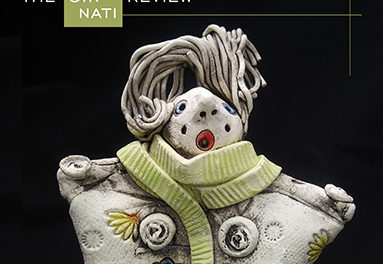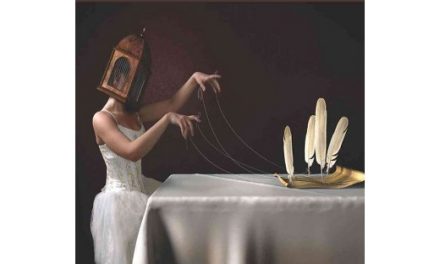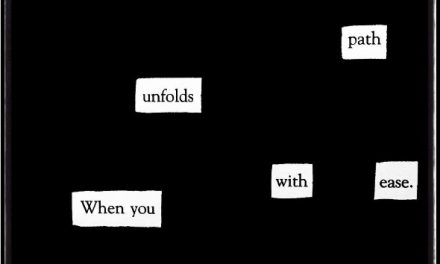One of our newest volunteers, Brian Brodeur, comes to us from Massachusetts via northern Virginia, so if you ask him to, he’s equally apt to drop his r’s (pahk the cah . . . ) for show or to tell you which DC Metro stations to avoid. Brian also knows lots about birds, hiking, sweaters, Nietzsche’s biography, Greek mythology, beards, beers, Browning-esque  dramatic monologues, and poker. When he’s doing office tasks for us, we like to ask him questions. “What bird has the highest metabolism of warm-blooded vertebrates?” we’ll say, or “What’s the difference between a cardigan and pullover?” “The hummingbird,” he’ll reply, or “A cardigan opens down the front.” He’ll even know that the ruby-throated hummingbird spends its summers in the US and then flies to Central America for the winter, and that the cardigan was named after the Earl of Cardigan who led the “Charge of the Light Brigade” in the Crimean War. He may even recite some Tennyson to amuse his cruel editors.
dramatic monologues, and poker. When he’s doing office tasks for us, we like to ask him questions. “What bird has the highest metabolism of warm-blooded vertebrates?” we’ll say, or “What’s the difference between a cardigan and pullover?” “The hummingbird,” he’ll reply, or “A cardigan opens down the front.” He’ll even know that the ruby-throated hummingbird spends its summers in the US and then flies to Central America for the winter, and that the cardigan was named after the Earl of Cardigan who led the “Charge of the Light Brigade” in the Crimean War. He may even recite some Tennyson to amuse his cruel editors.
When he’s not answering trivial questions (in every sense of the word), Brian’s the host of his own blog, How a Poem Happens. We coaxed him into contributing to our blog, too, and after asking very politely if he could remove his shackles so he could get to class on time, he tweeted out this message on John Poch’s poem “Two Rooms,” in Issue 9.1 (due out next month)—not on Twitter, but to the tune of the yellow-bellied sapsucker’s call. We made him then type it, double-spaced, with one-inch margins in 12 pt. Garamond.
Brian Brodeur: We often praise a piece of writing for risk-taking. John Poch’s poem “Two Rooms” risks pornography and, shockingly, gets away with it.
As the title suggests, the action of the poem happens in two adjacent “temporary” rooms. The shoddy “tin ceiling” and “minuscule cracks” of the first room, the room in which the speaker wakes, anticipate “the two porn actors” practicing “their visceral art” in the second. But before we discover the neighbors, Poch emphasizes the idea of making, of craft and workmanship, the way the “you” of the first stanza, “if [. . .] patient,” may glean a structure’s inner architecture. The poet then complicates this idea:
Above the ceiling, you know there are wooden beams
to which the tin is nailed. If you could see them,
the pine would be crude, but you accept the purpose
holding it all together and up, as a soul holds the body.
The “you” deduces from the shoddy tin that the beams are not only “pine” but that they are “crude.” Implied here is the fact that a deduction, however logical, is still an act of imagination. There is also an implied analogy: the “you” believes in or “accepts” the hidden beams just as the “you” accepts the existence of the soul.
 This sets us up for the poem’s major turn, which is marked by a shift from the second- to the first-person point of view, and the more radical leap from the sacred “soul” to the profane “porn actors.” Here the speaker recovers the theme of fact and belief by confessing: “I [. . .] think I know the dark house/ they are headed for” in “the room of needles and no thread.” Curiously, though, the actors “are not acting” but “making love.” They do not want the worry or concern of the speaker and his “late understanding.” They desire only the carnal “heaven” of their “visceral art” that we, the viewers, “become lost in,” an art “that is, in this counterfeit way, a kind of beauty.”
This sets us up for the poem’s major turn, which is marked by a shift from the second- to the first-person point of view, and the more radical leap from the sacred “soul” to the profane “porn actors.” Here the speaker recovers the theme of fact and belief by confessing: “I [. . .] think I know the dark house/ they are headed for” in “the room of needles and no thread.” Curiously, though, the actors “are not acting” but “making love.” They do not want the worry or concern of the speaker and his “late understanding.” They desire only the carnal “heaven” of their “visceral art” that we, the viewers, “become lost in,” an art “that is, in this counterfeit way, a kind of beauty.”
“Counterfeit” or salacious as it may be, “beauty” here still has the final word. By manipulating the “cracks” in easy perceptions of the beautiful, Poch transforms his subjects through his own “visceral art/ never done exactly this way,” redeeming the scene by “look[ing] past” the surface into “the very medium” of things. If what the poet finds above ceilings or through the walls seems “arbitrary” or “temporary,” why shouldn’t this be celebrated, too?










